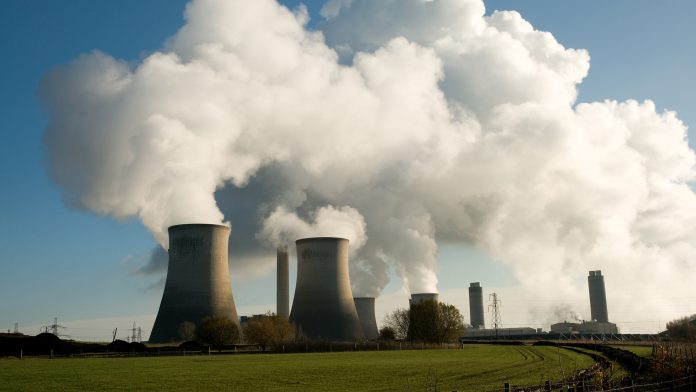Prime Minister Rishi Sunak says the UK must build new gas power stations to bolster the country’s energy security.
The government explained that the development of gas power stations would help to reduce dependency on volatile foreign imports, reduce the risk of blackouts, ease the strain on renewable energy sources, and reduce costs for consumers.
The new gas power stations will replace many of the ageing plants that will soon be retired.
However, the proposed move has sparked criticism, notably due to the government stating that the CO2 produced will not be captured.
Critics believe that the move contradicts the UK’s climate ambitions, with the country becoming the first major economy to pass the net zero emissions law in 2019.
This law requires the UK to bring all greenhouse gas emissions to net zero by 2050 compared to 1990 levels.
It's hard to see CCS playing a huge role in the UK power grid but certainly capturing those emissions would be better than not.
At @GreenAllianceUK we've argued for a clean flexibility taskforce to accelerate roll out of the cheaper alternatives https://t.co/wl9Cf8mLk5
— Liam Hardy (@liamkhardy) March 12, 2024
However, the PM believes new gas power stations will be essential for ensuring the nation’s energy security.
He said: “Our record on net zero speaks for itself – the latest stats show that we’re already halfway there, with greenhouse gas emissions 50% lower than in 1990.
“But we need to reach our 2035 goals in a sustainable way that doesn’t leave people without energy on a cloudy, windless day.
“I will not gamble with our energy security. I will make the tough decisions so that no matter what scenario we face, we can always power Britain from Britain.”
Impacts of gas power stations
While often touted as a cleaner alternative to coal, gas-fired power plants come with their own set of drawbacks.
The biggest concern is air pollution. Burning natural gas releases nitrogen oxides (NOx), which can irritate lungs and worsen respiratory illnesses like asthma. NOx also contributes to smog and acid rain, harming both human health and ecosystems.
Gas plants also contribute to climate change. While they emit less CO2 than coal plants, CO2 is still a major greenhouse gas. As we strive to reduce emissions, gas power becomes less sustainable.
Water usage is another concern. These plants require significant amounts of water for cooling, potentially straining local supplies. Additionally, discharging heated water back into rivers and lakes can disrupt aquatic life.
Due to these implications, the government’s decisions to reinforce the country’s portfolio of gas power stations have sparked controversy.
Following the government’s U-turn on the UK’s ban on new petrol and diesel cars last year, this begs the question, what other green policies will they change?
The UK power plant strategy
In the second round of consultations regarding the Review of Electricity Market Arrangements, the Energy Secretary has proposed a strategy to enhance gas power capacity.
This strategy entails expanding current regulations mandating that new gas plants be constructed with readiness for net zero operations, capable of transitioning to low-carbon alternatives in the future, such as carbon capture and hydrogen power.
Additionally, these gas power stations will operate less frequently as the UK progresses in deploying other low-carbon technologies.
The government says this initiative aligns with broader governmental objectives of achieving net zero emissions while ensuring affordability for consumers.
Energy Security Secretary Claire Coutinho commented: “There are no two ways about it. Without gas backing up renewables, we face the genuine prospect of blackouts. Other countries in recent years have been so threatened by supply constraints that they have been forced back to coal.
“There are no easy solutions in energy, only trade-offs. If countries are forced to choose between clean energy and keeping citizens safe and warm, believe me, they’ll choose to keep the lights on.
“We will not let ourselves be put in that position. And so, as we continue to move towards clean energy, we must be realistic.”
The government’s complete plans for gas power stations are still ambiguous, and many crucial details are yet to be announced.
Regardless, the proposed move would prove significant in the UK’s energy transition, reverting to type at a time when clean energy investment is key to a green future.









